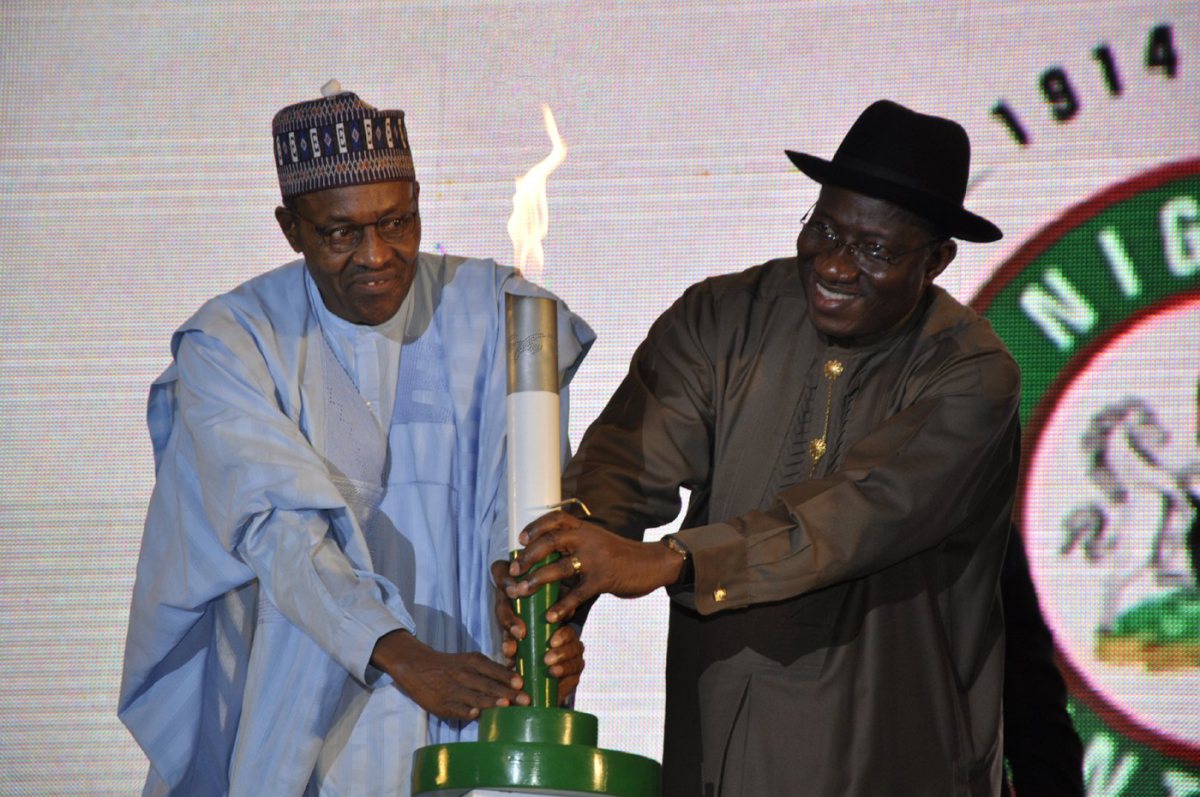by Soji Apampa
The nation heaved a big sigh of relief the moment Goodluck Jonathan gracefully conceded defeat to Muhammadu Buhari and averted the rivers of blood that local and international punters projected would flow in the streets of most major cities across Nigeria – a doomsday vision easily dismissed by the uninitiated. However, according to Richard L. Sklar, Professor Emeritus of Political Science at the African Studies Center of the University of California, USA, Nigeria’s ruling elite have shown capacity to negotiate compromise solutions that serve most of their ends, often at the expense of the public good, but their penchant for displays of brinkmanship could inadvertently — or in some cases deliberately — send their political struggles spiraling out of control and into the streets. Thank God those prediction did not come true.
What most onlookers had feared was that undue political interference in the electoral process would have resulted in the declaration of results unpalatable to a majority of the people, thus sending the Nigerian State into a tailspin – thankfully that was not the case. Instead, what we witnessed was the first ever regime change achieved through the ballot box rather than the barrel of a gun. In other words, the people’s victory achieved and handed to the APC was no small feat at all. Sklar further advises that if democracy is to consolidate in Nigeria, many of the elite must perceive that the democratic system serves their interests better than extra-systemic alternatives such as coups or warlordism, and the system must be able to check those elite who conspicuously break the rules. So, the people may well have tamed the strongmen but our democracy is still fragile and must be handled with care.
The emergence of Goodluck Jonathan as President of Nigeria destabilised the old order and ushered in some very complicated and dangerous reactions within Nigeria’s ruling elite. The State’s monopoly over the use of force was well and truly broken, and our military humiliated in the process – the real handlers of Boko Haram for instance, are yet to be unmasked but Goodluck himself suggested some were in his cabinet. To entrench the new order the resources of State were rapidly drawn down and converted into private funds for political patronage to the extent that our Excess Crude Account and External Reserves were inexplicably depleted (for example through dubious fuel subsidy claims and payments, the missing $20bn, etc.) and not enough done to stem outright theft of crude oil – all attempts to get Mr. President to see these acts as corrupt fell on deaf ears since to him, these were just acts of “stealing.” The impression was given that state policy was up for “sale” as many corporate leaders took turns in planting their candidates in strategic public posts in order to get policies formulated to their benefit – again this was part of normal life in the past six years as there was a feeling it was the “turn” of the South-South geopolitical zone, from which Jonathan hails, and collaborators in the South-East to call the shots. And last but not the least, a new narrative emerged that amplified the propaganda that Northern, Islamic interests have ruled Nigeria far too long and it was time for a Southern, Christian to “rule” even if this was at the expense of the wishes of the majority. The net effect of all these was a Nigeria where people across social and economic divides were mired in despair – no hope of a united Nigeria with a better future and less corruption. Whilst these uncomfortable adjustments were being permitted, those who could read the bigger picture could see that new alliances and power blocs were also emerging elsewhere in Nigeria.
It might at first appear that the emergence of the All Progressives Congress (APC), an alliance of major Nigerian opposition parties, was grossly underestimated by the ruling People’s Democratic Party of Nigeria (PDP) but that would not be true at all – what was ruled out was the possibility that a credible ticket could be fielded by the APC. “The move that changed everything” as the APC dubbed it was the fielding of a ticket that would represent a bridge across the major fissures in Nigerian society – across the North-South divide; Muslim-Christian divide, Military-Civilian divide; Experience-Professionalism divide; Technocrat-Politician divide and so on. On so many levels, the duo of Buhari and Osinbajo represented a hope and a dream big enough to unite Nigerians on so many levels that the PDP failed to identify before it was too late. In fact, at a point, President Jonathan was reported as complaining that “Osinbajo is my problem; everything was fine until he emerged” or words to that effect.
The world has hailed the historic choice of the ballot over bullets but is this really evidence that the ruling elite has finally perceived that the democratic system serves their interests better than extra-systemic alternatives such as coups or warlordism? Does this mean a true consolidation of democracy in Nigeria? Can the people really check elite impunity and wanton disregard for the rule of law? The evidence would appear when our democratic system is able to check those elite who conspicuously break the new rules set by the people, until then our democracy is still fragile and Nigerians must be watchful and assertive and guard the democratic space, voice and leverage they have won with everything they have.
Soji Apampa, the co-founder of The Integrity Organisation, can be reached at Twitter: @sojapa, and email: [email protected].
Opinions expressed in this article are solely those of the author.







